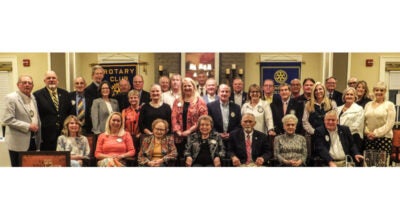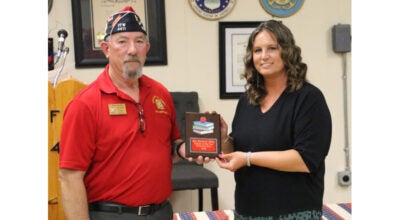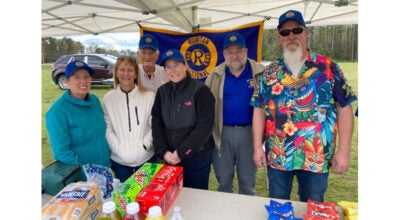Honestly… I get it
Published 10:20 am Friday, March 23, 2018
by Charles Qualls
“I wish I’d known then what I know now. I wouldn’t have done it.”
“I wish I’d said something earlier. I’m so sorry I left that hanging with you and caused so much hurt.”
“I never thought of what this did to anyone around me. I was just doing what I wanted to. Now I get it.”
You’ve said these things. So have I. None of us much set out to be bad, probably. Yet, none of us live up to the greatest hopes God has for us, either. We all fall short.
If we’re being honest with ourselves, and it’s about time we were honest with ourselves, we usually do know when we are messing up. There are a lot of things about our spiritual lives that are best and even only learned in the rearview mirror. Most of our shortcomings, our sins, aren’t that way.
Deep down, we know most of the time. I studied criminology a little as part of a degree I got in college more than 30 years ago. Short of most sociopaths and probably all psychopaths, you and I likely don’t fool ourselves very often in our moments of wrong.
If I say the wrong thing, I had at least a split-second to stop myself usually. If you take a shortcut, do something that will fracture a relationship, post the insensitive thing on social media or start to be mean to someone, there’s probably a voice jockeying for your attention trying to get you not to.
We do it anyway.
My brother raised our two wonderful nieces with my sister-in-law. They are such good young, married women now. But, when they were younger my brother cracked us all up at a family gathering by saying, “I live in a house with all women. I’m married to Janna. I have two teenage daughters. We even have two female cats who look at me with disgust half the time. I start each day by walking out to the landing and looking over the rail to the downstairs. Then I say, ‘I’m sorry!’ I don’t know what for yet — but whatever it will be today — I’m sorry!’”
Psalm 51 is one of the lectionary texts for this Lenten season. It is actually a part of the Davidic collection. We have no actual way of knowing if he wrote this, but it has been attributed to him and explained as being from about the time when the prophet Nathan boldly spoke truth to his power about the sin with Bathsheba.
David was a big boy. He knew better than to look on another man’s wife from his rooftop. He knew not to send Uriah to his death in battle just to get rid of him.
But he did these things anyway.
This psalm is so powerful, whoever wrote it. Let’s all admit that anyone could have written it. We all could write it, if we’re being honest during Lent. This is the heart of a person who has finally heard another voice than their own. Another voice other than their inner 3 year-old, because the voice of “I want, I want, I want …” is usually the one who talks us into the shortcut. The omission. The wrong. The ethical or moral gaff.
This writer has heard the voice of the Spirit of God and responds now by saying, “I get it.” But, it’s more than that. If you’ve heard these words then you know they go to a rare place. One scholar has said that Psalm 51 is revered as the most moving and memorable of the seven penitential psalms. It may be the most profound statement of what penitence truly involves of any writing in the entire Bible.
This is not poetry for the sake of art. This is gut-wrenching transparency that could only come from a place of brokenness. It is a plea for mercy and for the forgiveness of God.
It is also the only proper posture left, one person has said, for the sinner whose fall is inevitably the result of the wishy-washiness of his own loyalty to God. But, who also knows deep down … hopes deep down …prays deep down … that his God has one more attitude of mercy left for him.
Before Easter arrives, this trail of confession is one we do well to walk. This is not the most uplifting time we can spend. It’s heavy and vulnerable before God. But, read Psalm 51 this week. Take in its honesty, and see if you don’t have some things to speak with God about. Then, prepare for the victory of the Easter resurrection. A time of hope. A time of newness. A time of gratefulness before a merciful God.
DR. CHARLES QUALLS is senior pastor at Franklin Baptist Church. Contact him at 562-5135.





